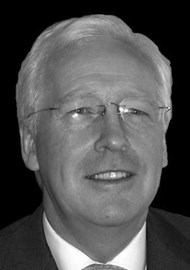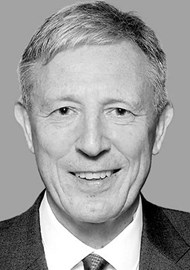
In my opinion – certainly not the Royal College of Surgeons of England (RCS), if the new requirements in their Cosmetic Surgery Certification Scheme are read correctly, because self-certification without a formal training assessment and formal examination is meaningless. The significant monies paid by the aspiring candidates would be better spent within the training programmes provided by the UK Association of Aesthetic Plastic Surgeons – Consortium of Aesthetic Plastic Surgery Clinic Owners (UKAAPS-CAPSCO) and with a university-based accreditation.
If the current misguided certification programme is generally accepted, then it could also be adapted so that only self-certification could be needed for FRCS or even MBBS! For those rushing to promote the certification scheme, just consider who will decide the assessors and what qualifications do they need or have? Questions to consider are: Is this a quango intended to generate income and exert control using an agenda that is not within their remit? Are the instigators swansong RCS executives keen to satisfy their own ‘ego’? Are these possible egocentric RCS executives in ‘real time’ active aesthetic plastic surgery practices?

Trainees are not examined by aesthetic plastic surgeons in this examination and there is likely no independent or supervised surgery and follow-up on cosmetic surgery patients in the trainee’s logbook. Aesthetic plastic surgeons in full-time private practice have been barred from sitting as examiners despite their clear competency to do so. The RCS certification scheme states that new plastic surgeons “can now apply for multiple certificates in a single application that covers all ‘11’ areas”. However, you should already be qualified to do this if the FRCS(Plast) is what they say it is! Established consultants can join by the new ‘Established Practitioner Route’ if they have three years plus in the private sector, are a full member of relevant UK professional association and on the GMC specialist register, through alternative evidence and self-declaration.
The private hospitals, especially the large corporate providers, do not want cosmetic surgery in their hospitals. Since Covid emerged in 2020, they are too interested in new NHS contracts that lure in local NHS surgeons and provide the environment for them to do their version of cosmetic surgery on low remuneration hybrid lists. There is no significant supervised hands-on training by plastic surgeons in the private sector for trainees unless they are awarded a hands-on fellowship at one of the emerging centres of aesthetic training recently provided by UKAAPS-CAPSCO.
How are the assessors assessed and approved? The Royal College of Surgeons of Edinburgh appears to be taking the rose by the thorns and recognising the need for a structured training programme by working alongside the UKAAPS-CAPSCO programme. In my view there needs to be a structured training programme leading to a new qualification, accepted by all, that the public and media can recognise as acceptable. Both trainees and trainers need to be measured on outcomes.
How, therefore, can outcomes be assessed? The independent use of ‘Face and Body Q’s, while noble in intention, are complex and time-consuming to complete and as unnecessary as the proposals to seek a psychological assessment of patients prior to surgery. Without full compliance the data is meaningless. We need validated evidence of hands-on competency in aesthetic surgery to keep patients safe.
The Keogh Report was intended to protect the public from unregulated surgery, but influencers including the RCS and the other named ‘responsible’ organisations have confused the Keogh Report by concentrating on need for regulation in cosmetic surgery, which is vastly different to the need for regulation in aesthetic surgery. Cosmetic surgery is the surgery of want not need and in practice the majority of patients seeking aesthetic surgery are having surgery of need. This is defined as ‘aesthetica’ and is the use of advanced aesthetic surgery techniques to improve the wellbeing of those with deformity, disease or disability. Without surgeons having proper training in aesthetic surgery NHS patients are not really getting the best deal and there remains a distinct mediocrity of accepted outcome.
In the real word those cases of ‘botched plastic surgery’ displayed in the media, and the reason for the Keogh Report, are hardly ever done by accredited UK-trained plastic surgeons. There is now a ‘wild west’ of nurses, dentists, GPs and doctors who are not on any kind of specialist register and cannot demonstrate any surgical training, yet they will not be affected in their practices by the RCS certification scheme. In fact, these alternative practices may flourish as regulatory expenses to the ‘certified’ mean fees for a procedure reach a tipping point so that many will prefer to take a chance and go to the unregulated. Vulnerable patients will often choose the cheaper option at home or abroad, not really knowing what accreditation actually means. How and who is going to regulate these cheaper options?
In real terms there are actually 14 competencies that the aesthetic surgeon should be assessed for competency by examination. These 14 aesthetic surgical competencies were available by performance assessment on the UKAAPS / MCh Course in Aesthetic Plastic Surgery to all NHS trained and accredited plastic surgeons wanting to work in aesthetic private practice. At the time that the course was set up it was recognised by the International Society of Aesthetic Plastic Surgery (ISAPS) but not by the British Association of Aesthetic Plastic Surgeons (BAAPS) or the British Association of Plastic Reconstructive & Aesthetic Surgeons (BAPRAS). Fortunately, the more dynamic UKAAPS saw the light and many excellent plastic surgeons have benefited.
Recently the RCS stated that “The Cosmetic Surgery Certification Scheme (CSCS) has been refreshed to better suit your needs”. The truly dedicated surgeons in the aesthetic industry are confident in their own care pathways and many have resigned from the NHS, now setting up in their own clinics because of the lack of space in private hospitals. This has helped clear what was a nightmare for training programmes, with an employment backlog of time expired surgeons and an increasing number of trainees, even with a quadrupling of the numbers of plastic surgery consultants.
The CSCS system, set up in the wake of the Keogh Report, “was developed and supported by all four surgical colleges and specialty associations”. The CSCS system claims it “will provide you with accreditation for key competencies demonstrating your expertise to patients and ultimately helping to make the cosmetic surgery industry safer”. There is a mandatory cost of £650 and then an additional £475 for a mandatory course on Professional Behaviours in Aesthetic Surgery of £475.
The aims of the Intercollegiate Cosmetic Surgery Insight Committee (ICSOC) are noble and are to “recognise and promote high standards and good practice”, but their certification process will obviously encourage applicants to perform a procedure merely to satisfy requirements which is their stated concern.
But who benefits? Certainly not a ‘new on the block’ plastic surgeon who in my view needs to complete at least six months of supervised aesthetic surgery in the private sector to get close to doing a reasonable number of the competencies needed on the paper exercise. Newly accredited plastic surgeons will develop skills and experience over many years of their career and that usually means that early patients are most at risk. Rhinoplasty should not be carried out by plastic surgeons without a period of extensive supervision and therefore surely no new surgeon can be accredited, from any specialty. Without patient referral, malpractice insurance cover and a facility to work in, there can be no gain in experience and specialist accreditation is unlikely to be properly maintained. There is a distinct need for accredited trainers in the private sector and outside of the NHS. However, trainees should have mandatory attachments to trainers working full time in the private sector. Those with experience know that less aggressive techniques are safer and give equal if not better long-term results but selecting the best option is not what is taught in an NHS cosmetic practice.
Acceptance of mediocrity is very likely with this paper qualification proposed by the RCS and now clearly replaces striving for advances and excellence. Perhaps UKAAPS-CAPSCO should be approached on their views on the accreditation scheme proposed by the RCS(Eng) and the best way to improve and regulate training!
Declaration of competing interests: The author is a founder member and former president of UKAAPS.
COMMENT FROM ANDREW BURD, EDITOR OF THE PMFA JOURNAL
I always enjoy reading the thoughts of Professor Frame. In this case I must declare that when I consider the title “Who should decide the qualification to do cosmetic surgery?” I wonder if this is the right question? We have discussed this before over the years and there are two points to make:
First: Do qualifications assume or prove competence?
And second: What is cosmetic surgery?
I see later in the text Jim refers to surgery of ‘want’ and surgery of ‘need’ in terms of cosmetic versus aesthetic surgery. That, however, is an unconvincing argument to me because somebody’s need may be someone else’s want. It is altogether too subjective.
The terminology in the field is a mess. Jim lived through the farcical rebranding exercise when ‘plastic surgery’ became ‘plastic, reconstructive and aesthetic surgery’. The only good thing that came out of that was the recognition that a salamander is not a reptile but a urodele with true regenerative properties.
There is no speciality of cosmetic surgery in Hong Kong. This has become a very serious matter of law as I have been describing in the series of blogs based on the trial of Dr Vanessa Kwan. She is in now in prison for six and a half years. Meanwhile, a professor who is a specialist in plastic surgery, speaking as an expert for the prosecution claimed that he was trained in cosmetic surgery. He was not. He has no demonstrable qualifications or certificates of competence in cosmetic surgery. Nevertheless, he was able to stand up in a High Court in Hong Kong and engage in false promotion of both himself and the specialty of plastic surgery in Hong Kong. Perjury is an offense punishable by up to eight years in prison.
Australia has got a problem too. Plastic surgery trainees are not exposed to or experienced in cosmetic surgery when they receive their certificates of competence. It is similar to the current problem in the UK. Jim and I both went through an apprenticeship-type training when many cosmetic procedures were funded in the NHS. Prominent ear setback was routine for all senior house officers in plastic surgery in the 1980s. Breast augmentation was one of the most frequent registrar level operations, along with abdominoplasties and rhinoplasties. Yes, let me take a short break here for a question: prominent ears – is setback an operation of want or need?
I am very interested to see how Patrick Tansley is getting on in Australia. He was UK trained and is now the President of the Australasian College of Cosmetic Surgery and Medicine (ACCSM). I would really like to hear his views on the Australian solution.
Of course, when talking about ‘cosmetic transformations’ there are the skills, competencies, training, etc. but really, when an intervention is ‘cosmetic’ does it still ‘operate’ within the ethical rules of non-cosmetic ‘transformations’?
Do you need to be a medical practitioner to be a cosmetic practitioner? There are many questions regarding needles and nurses, professional beauty therapists, non-surgically trained surgeons. What determines who is competent? Not qualifications. Not primary degree. Not pedigree. I think we should be looking in more depth at the differing moral concepts that must arise when practising medicine for need compared to practising medicine for those who want it. This struck me when we were looking at informed consent in cosmetic practice. This is a bit farcical because the ‘want’ is patient driven. The patients are the prime movers. They are not being forced to undergo any treatment. It is their choice. And, it should be their responsibility. If they are not able to accept that responsibility, then they should not have the treatment.
Should we be upset or horrified at some of the poor outcomes of cosmetic interventions? Performed by ‘freelancers’ as Jim would have it? Or are these patients just getting what they deserve? Caveat emptor.
The ‘wild west’ was not controlled by laws and regulations but by the speed of wielding a gun, and the accuracy with which it was used. We have a ‘wild west’ in Hong Kong and it will remain so whilst the regulators fail in their duty to protect the public. If they grant a licence to practise to a doctor without ascertaining if they are fit to practise should they, the regulators, not be held responsible if a doctor makes a mistake? Similarly, what if those who offer ‘qualifications’ to perform unnecessary interventions have to accept liability for the outcomes? Gosh, pretty radical! What if it was possible to draw a line between want and need. An objective line. And those who wanted to work in the context of unnecessary interventions did so on the basis that they were immune from litigation if things did not work out! Has that not been the way of builders, plumbers, car mechanics and so many more ‘skilled’ occupations in the past?
In summary: qualifications per se are pretty meaningless. A qualification which comes with a guarantee of competence is something else. Who would be prepared to underwrite such a proposal? And how would such a scheme work? Maybe, a wealthy consortium of clinic owners working with centres of excellence could begin to offer a premier service where qualified individuals would not be held liable for outcomes. And, if an adverse outcome does occur, the response would be to investigate and not litigate? Cosmetic surgery, cosmetic medicine, cosmetic transformations are defined as not essential, as an indulgence. Why try to regulate the world of cosmesis in the first place? Caveat emptor. Free market medicine, except it is not medicine. Is it?
Click here for a response to this article by Patrick Tansley, President, Australasian College of Cosmetic Surgery and Medicine (ACCSM), Specialist Plastic Surgeon.
COMMENTS ARE WELCOME










